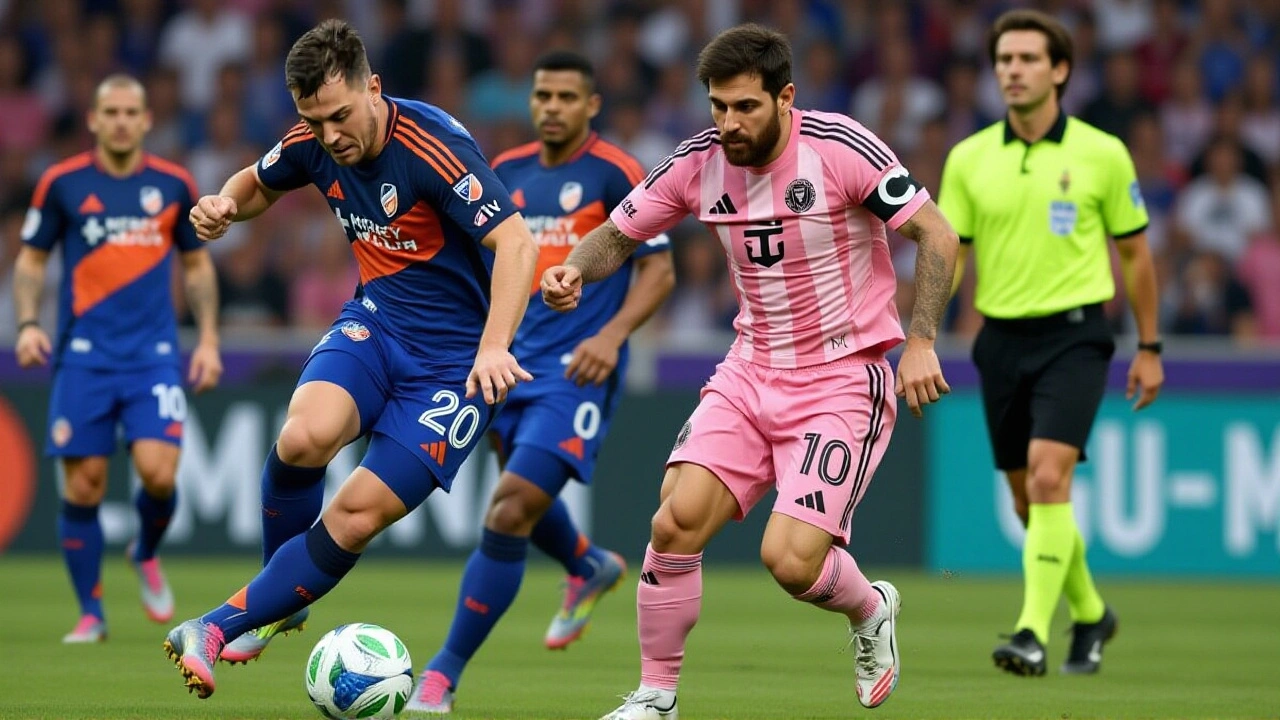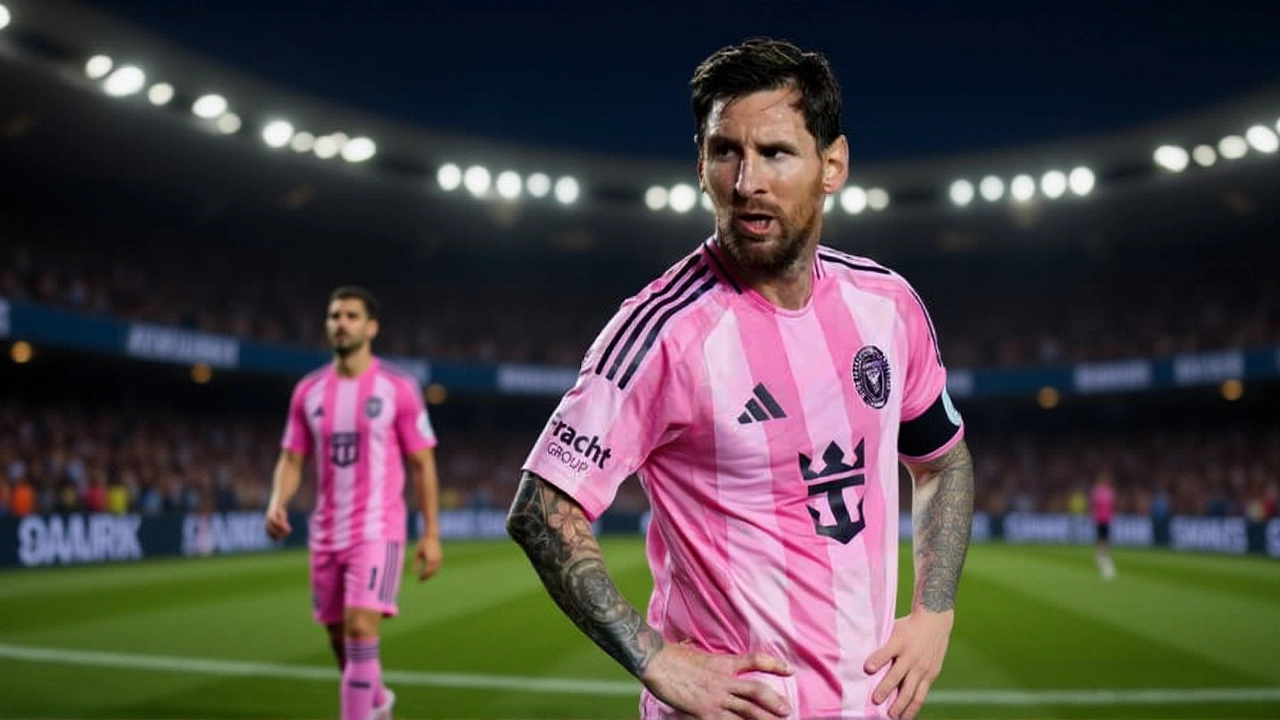On a chilly Thursday afternoon, D.C. United stunned fans by announcing that Lionel Messi and Inter Miami CF will face off at M&T Bank Stadium in Baltimore on D.C. United vs. Inter Miami CF, Baltimore—a game set for 4:30 p.m. Eastern Time. The venue, best known as the home of the Baltimore Ravens, will temporarily transform into a soccer spectacle, marking one of the most unusual venue swaps in Major League Soccer history. Why Baltimore? Because D.C. United isn’t just playing a match—they’re planting a flag in a new frontier.
Why Baltimore? The DMV Strategy
For decades, D.C. United has been the heartbeat of Washington, D.C., playing at Audi Field. But the club’s leadership has quietly recognized something: the region doesn’t stop at the Potomac. The DMV—District of Columbia, Maryland, Virginia—is a metro area of nearly 6 million people, and Baltimore is its overlooked cousin. With a population of over 600,000 and a passionate sports culture, the city has long been a black hole for soccer fans who can’t make the 40-minute drive to D.C. Now, D.C. United is reaching out.
"Audi Field will always be our home and the heartbeat of our club," said Danita Johnson, President of Business Operations at D.C. United. "But M&T Bank Stadium gives us the opportunity to welcome even more supporters and share what makes D.C. United special with our neighbors to the north. Our fans drive everything we do."
It’s a calculated gamble. The Ravens’ stadium seats 71,000—nearly triple the capacity of Audi Field. And with Lionel Messi on the pitch, they’re not just hoping for a sellout—they’re banking on a cultural moment.
The Messi Factor: Goals, Assists, and a Mystery Season
Let’s be clear: this isn’t just another MLS game. It’s the most anticipated match since Lionel Messi arrived in the league. According to the Maryland Stadium Authority’s announcement, Messi leads MLS in goals (29) and assists (19) “this season.” But here’s the oddity: the match is scheduled for March 2026. That means “this season” likely refers to the 2025 MLS season—the one that just ended. If that’s accurate, Messi would be averaging nearly a point per game in his second full season in the league. That’s not just elite. It’s historic.
And yet, there’s no confirmation yet whether Messi will still be playing in 2026. He’s 39 by then. But if he is? This game becomes a pilgrimage. Fans from New York to Virginia are already whispering about booking flights. Ticketmaster listings confirm the matchup, and the Baltimore Ravens’ website has echoed the announcement with zero fanfare—just the facts. No press release. No celebration. Just a quiet nod from the NFL franchise that owns the venue.
Chaos in the Details: ESPN’s Date Discrepancy and Fan Reactions
Not everything lines up. ESPN lists the match on March 8, 2026. Every other source—Ticketmaster, the Ravens’ site, the Maryland Stadium Authority—says March 7. The discrepancy is small, but telling. In a world where fans track every pass, every substitution, every tweet, this kind of inconsistency breeds confusion. And confusion? That’s the enemy of ticket sales.
Meanwhile, fan feedback from last season offers a glimpse into what’s coming. One Ticketmaster reviewer, “cpena,” wrote in November 2025 about their experience at Chase Stadium in Fort Lauderdale: "They played SIN PARAR the whole game. It got old." The band—part fan chorus, part team-sponsored spectacle—has become a polarizing tradition for Inter Miami. Will it come to Baltimore? If so, expect mixed reactions. Some will cheer. Others will mutter, "Why is there a mariachi band at a soccer game?"
Pre-Sale Chaos and the Typeform Frenzy
Want a ticket? You can’t just log on to Ticketmaster. First, you have to register through a Typeform survey hosted by the Maryland Stadium Authority. The link—https://form.typeform.com/to/V7LG4HWB—is already trending in local Facebook groups. Fans are screenshotting it. Sharing it. Praying they’ll get priority access.
That’s because this isn’t just a game. It’s a test. Can a soccer team successfully transplant a marquee match into a football stadium in a city with no MLS presence? Can they turn a Tuesday night in March into a regional event? If they succeed, other clubs will follow. Imagine New York City FC playing at MetLife Stadium. Or LA Galaxy at SoFi. This game could be the blueprint.

What Comes Next?
First, the season opener: D.C. United kicks off their 2026 campaign on February 21 against the Philadelphia Union at Audi Field. That’s the warm-up. The Baltimore match? That’s the main event.
And then? The ripple effects. Will Baltimore get its own MLS team? Probably not soon. But this game will make the case louder than ever. Local politicians are already quietly asking: "If D.C. United can draw 60,000 here, why can’t we?"
The Bigger Picture: Soccer’s Urban Expansion
This isn’t just about one match. It’s part of a quiet revolution. Soccer in America is no longer confined to suburban complexes or MLS-specific stadiums. It’s moving into the big venues—the NFL and MLB stadiums—where the crowds are bigger, the atmosphere is louder, and the stakes feel higher. The 2026 World Cup will be hosted across the U.S., Canada, and Mexico. And cities like Baltimore are being groomed as potential hosts.
By bringing Lionel Messi to M&T Bank Stadium, D.C. United isn’t just selling tickets. They’re selling possibility. To a city that’s waited too long. To a fanbase that’s tired of driving. To a league that’s finally realizing: soccer doesn’t need its own stadium to thrive. It just needs the right moment.
Frequently Asked Questions
Why is D.C. United playing in Baltimore instead of Washington, D.C.?
D.C. United is using M&T Bank Stadium to tap into Baltimore’s large, underserved soccer market. While Audi Field remains their official home, the club sees Baltimore as a strategic expansion zone within the DMV region. With a stadium nearly triple the size, they aim to reach fans who find the D.C. commute difficult or prefer a more central location in Maryland.
Will Lionel Messi actually play in 2026?
There’s no official confirmation, but Messi’s contract with Inter Miami runs through 2026, and his performance in 2025 suggests he’s still at peak form. At 39, he may not play the full 90 minutes, but even 30 minutes of Messi on that field would draw global attention. His presence alone is the main draw.
Why is there a band playing during Inter Miami games?
Inter Miami’s in-stadium band, known for playing Latin hits like "SIN PARAR," is a team-sanctioned tradition meant to celebrate the club’s Miami roots and Hispanic fanbase. While some fans love the energy, others find it repetitive. Whether it comes to Baltimore remains unconfirmed—but if it does, expect strong reactions.
How can I get tickets for the March 7, 2026 match?
Tickets won’t be available through regular sales. Fans must first register via a Typeform survey by the Maryland Stadium Authority to gain priority access. Only those who pre-register will receive a code to buy tickets before the public on-sale date. The link is posted on D.C. United’s official site and has already drawn thousands of registrations.
Could this lead to an MLS team in Baltimore?
It’s a strong possibility. While no formal bid exists, the overwhelming interest in this match could push local leaders to explore an expansion team. Baltimore has the infrastructure, the fanbase, and the proximity to D.C. to support a franchise. This game may be the first step toward making it happen.
Why does ESPN list the game on March 8 instead of March 7?
The discrepancy is unexplained, but all official sources—including Ticketmaster, the Maryland Stadium Authority, and the Baltimore Ravens’ website—confirm March 7. ESPN’s listing is likely an error, possibly due to time zone confusion or internal data sync issues. Fans should rely on the official sources for accurate scheduling.
